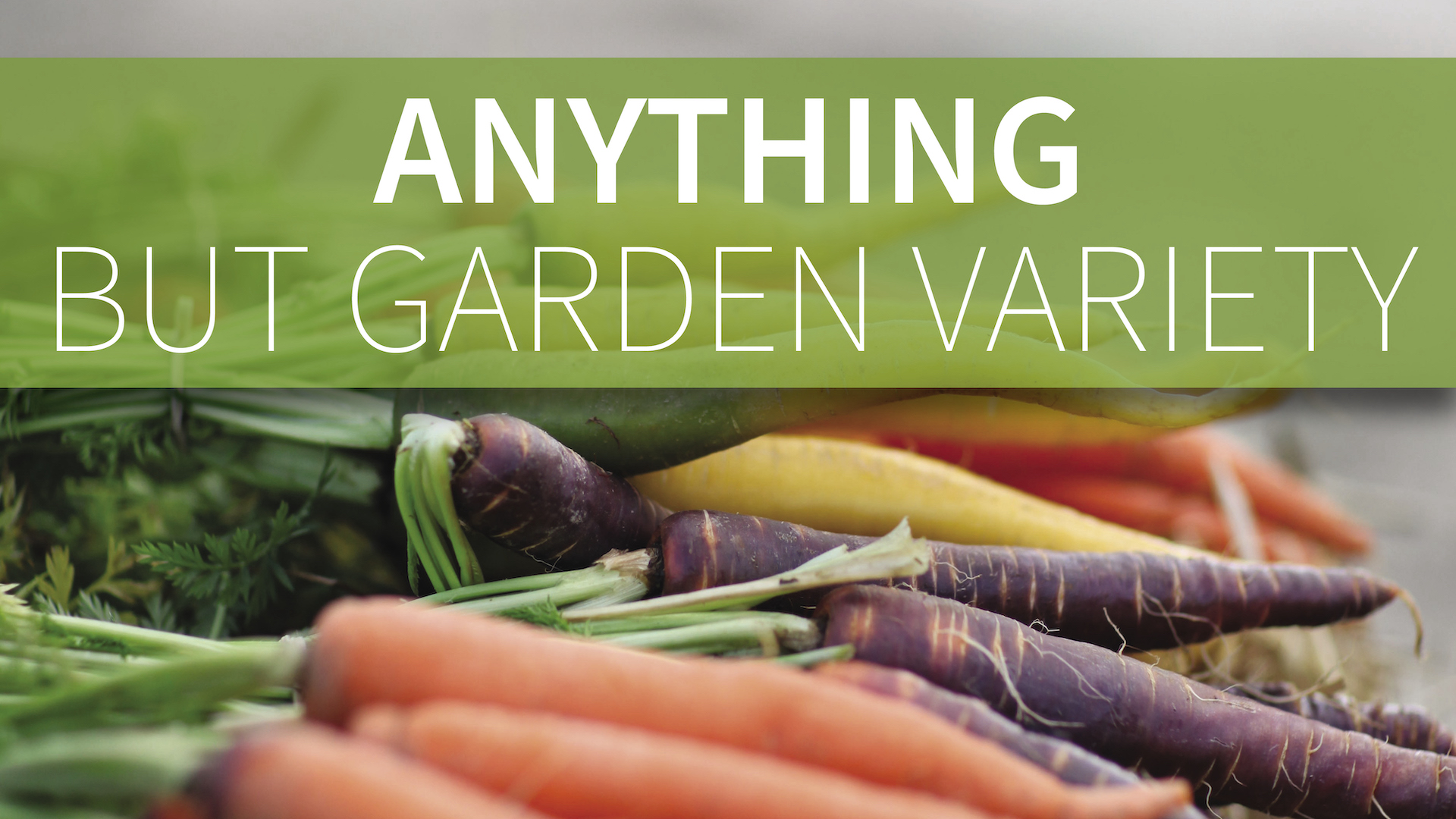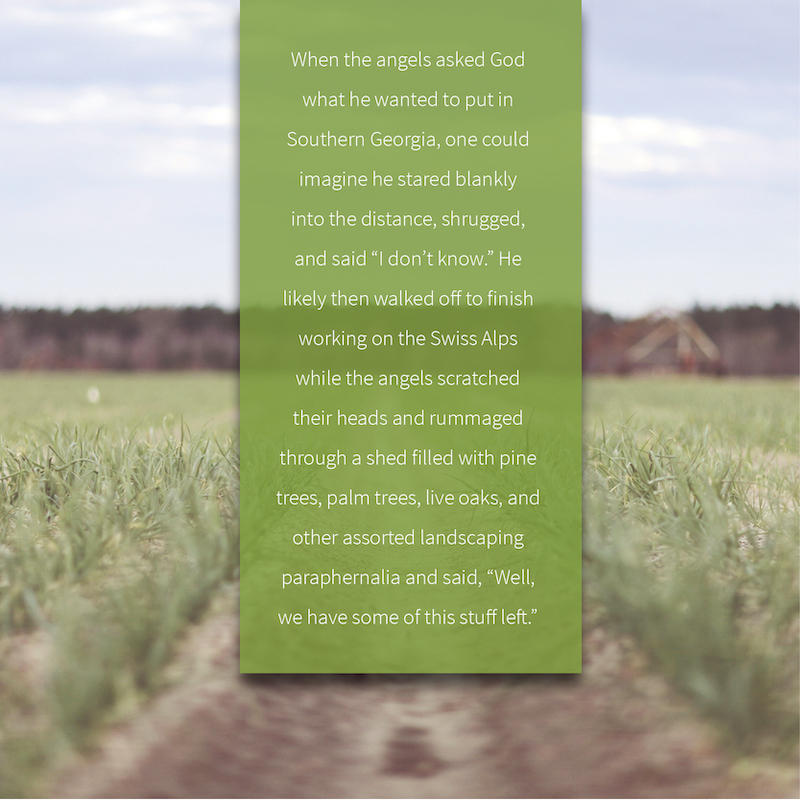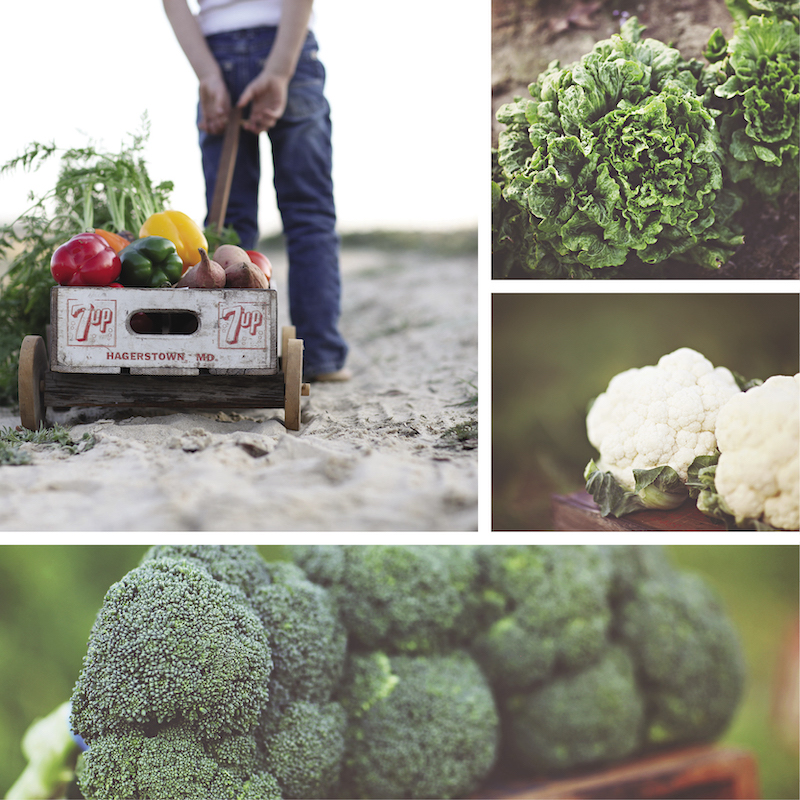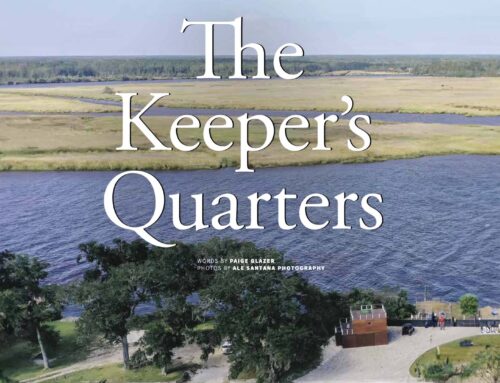
Anything But Garden Variety
WORDS BY Daniel Hentschel PHOTOS BY Morris and Co.

When the angels asked God what he wanted to put in Southern Georgia, one could imagine he stared blankly into the distance, shrugged, and said “I don’t know.” He likely then walked off to finish working on the Swiss Alps while the angels scratched their heads and rummaged through a shed filled with pine trees, palm trees, live oaks, and other assorted landscaping paraphernalia and said, “Well, we have some of this stuff left.”
The geography, climate, and landscape of Southern Georgia is the East Coast at its most insecure. Our soil is but sand and clay for about 75 miles inland, low in nutrients and high in nuisances. Find a secluded enough dock under the salt marsh skyline, and you’re likely getting a good look at what Earth looked like in its preteen years.
The U.S. Department of Agriculture (USDA) separates North America into 11 climate zones based on which plants can comfortably survive through an average winter. Here in Richmond Hill, we are just on the edge of Zone 8 and Zone 9, meaning our plants can survive an average minimum winter temperature of 15 to 20°F. God help us if we ever get down to 15°, but it is a safe estimated range.

Now, believe it or not, we are blessed to be here. Georgia has a late first frost, an early last frost, and a long, hot summer. You may not like this, but your vegetables will. Harvest time comes twice a year in our temperate climate. Cool-season vegetables like carrots, peas, celery, broccoli, collards, and spinach can be sowed in late winter and harvested early summer. Then, they can be sowed AGAIN in early fall for an early winter harvest.
By now, there is a gardener in Michigan puncturing your voodoo doll with a thumbtack. And they should be envious–not only can you get two vegetable harvests per year, but our mild winters allow you to plant tropical fruits your northern friends can only hope to find at Kroger. Oranges, grapefruits, figs, bananas, lemons, tangerines, even limequats, kumquats and jujubes do wonderfully with access to drainage and morning sun.

As long as you’re feeling experimental, the sky is the limit. So, grab your green thumb and shovel and take on the same entrepreneurial spirit God had when He started His garden. This is Southern Georgia, where the weather can’t make up its mind and neither should you. In the land of rain and sun, heat and AC, palms and maples, you don’t need to be an expert. The land, indecisive and turbulent, dares you to take the risk.
Let’s see what you’ve got lying around in your shed.















